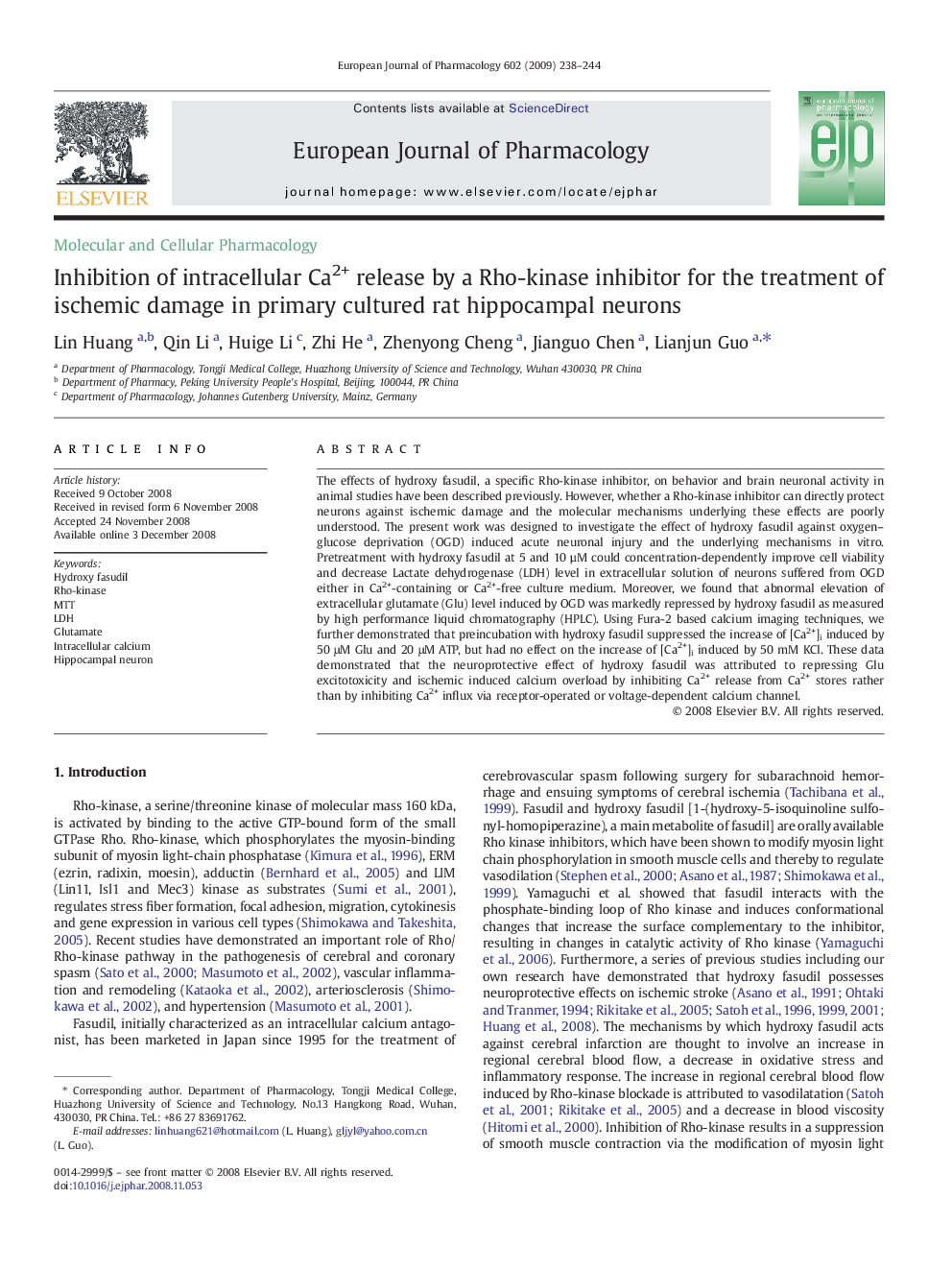| Article ID | Journal | Published Year | Pages | File Type |
|---|---|---|---|---|
| 2534504 | European Journal of Pharmacology | 2009 | 7 Pages |
The effects of hydroxy fasudil, a specific Rho-kinase inhibitor, on behavior and brain neuronal activity in animal studies have been described previously. However, whether a Rho-kinase inhibitor can directly protect neurons against ischemic damage and the molecular mechanisms underlying these effects are poorly understood. The present work was designed to investigate the effect of hydroxy fasudil against oxygen–glucose deprivation (OGD) induced acute neuronal injury and the underlying mechanisms in vitro. Pretreatment with hydroxy fasudil at 5 and 10 µM could concentration-dependently improve cell viability and decrease Lactate dehydrogenase (LDH) level in extracellular solution of neurons suffered from OGD either in Ca2+-containing or Ca2+-free culture medium. Moreover, we found that abnormal elevation of extracellular glutamate (Glu) level induced by OGD was markedly repressed by hydroxy fasudil as measured by high performance liquid chromatography (HPLC). Using Fura-2 based calcium imaging techniques, we further demonstrated that preincubation with hydroxy fasudil suppressed the increase of [Ca2+]i induced by 50 μM Glu and 20 μM ATP, but had no effect on the increase of [Ca2+]i induced by 50 mM KCl. These data demonstrated that the neuroprotective effect of hydroxy fasudil was attributed to repressing Glu excitotoxicity and ischemic induced calcium overload by inhibiting Ca2+ release from Ca2+ stores rather than by inhibiting Ca2+ influx via receptor-operated or voltage-dependent calcium channel.
